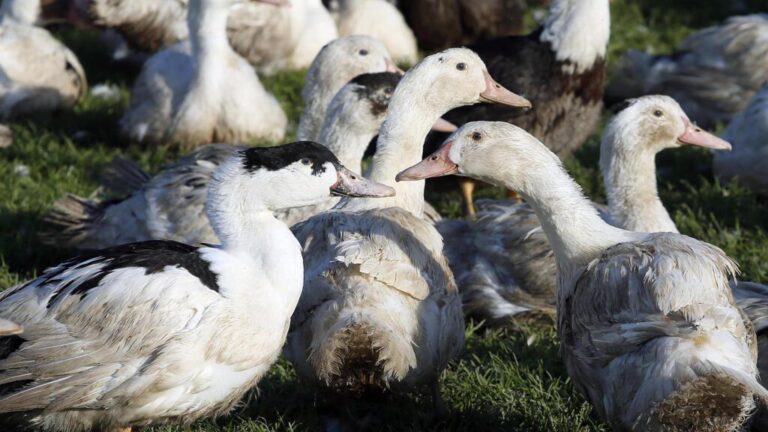France has elevated its bird flu alert to the highest level following a series of new outbreaks across the country, health authorities announced Thursday. The decision comes amid growing concerns over the rapid spread of avian influenza, prompting intensified measures to contain the virus and protect both poultry farms and wild bird populations. This heightened alert underscores the escalating challenge posed by the epidemic as France seeks to prevent further economic and ecological impact.
France escalates bird flu alert to maximum level amid fresh outbreaks
France has intensified its response to the avian influenza crisis by escalating its alert to the highest level. This decision follows the detection of several new cases across multiple regions, signaling a worrying resurgence of the virus among wild and domestic bird populations. Authorities have urged poultry farmers and the public to remain vigilant, emphasizing the implementation of strict biosecurity measures to curtail further spread and protect both animal and public health.
Key measures introduced include:
- Mandatory confinement of all domestic poultry nationwide
- Heightened surveillance and rapid diagnostic testing in suspected areas
- Enhanced controls on bird transportation and markets
- Immediate culling protocols for confirmed infected flocks
| Region | New Cases | Control Status |
|---|---|---|
| Nouvelle-Aquitaine | 15 | Quarantine enforced |
| Occitanie | 8 | Increased surveillance |
| Hauts-de-France | 12 | Movement restrictions applied |
Authorities implement stringent containment measures to prevent virus spread
In response to the escalating threat posed by recent avian influenza outbreaks, French authorities have enacted a series of rigorous containment protocols aimed at curtailing the virus’s transmission among bird populations. These measures include the immediate establishment of quarantine zones around affected farms, suspension of live bird markets in high-risk areas, and enhanced surveillance operations that involve daily health inspections and mandatory reporting of suspected cases. Additionally, the government has mandated strict biosecurity practices for poultry farmers, emphasizing controlled access to facilities and comprehensive sanitation procedures.
Key containment strategies currently enforced:
- Restriction of bird movement within and between regions
- Compulsory culling of infected and exposed flocks
- Distribution of protective equipment to farm workers
- Public awareness campaigns focused on early symptom detection
| Containment Measure | Implementation | Duration |
|---|---|---|
| Quarantine Zones | Immediate around outbreak sites | Minimum 21 days |
| Market Suspension | Nationwide in affected departments | Until containment confirmed |
| Mandatory Culling | Infected/exposed flocks only | Ongoing as needed |
Impact on poultry industry prompts urgent government support initiatives
In response to the escalating bird flu outbreaks, the French government has introduced a suite of support measures aimed at stabilizing the poultry sector, which has faced severe disruptions. These initiatives include emergency financial aid to affected farmers, enhanced biosecurity protocols, and accelerated vaccination programs to curb the spread of the virus. The urgency reflects the industry’s critical role in France’s agricultural economy and food supply chain, where millions of birds have either died or been culled to prevent further contagion.
Key elements of the government’s support package emphasize:
- Compensation schemes for farmers who lose stock due to mandatory culling
- Investment in rapid diagnostic technologies to enable quicker detection and containment
- Stricter monitoring and movement controls across farms and transport routes
| Measure | Focus | Expected Outcome |
|---|---|---|
| Financial Compensation | Farmers affected by culling | Mitigate economic losses |
| Biosecurity Upgrades | Farm hygiene and control | Reduce virus transmission |
| Vaccination Campaigns | At-risk poultry populations | Long-term outbreak prevention |
Experts advise enhanced biosecurity practices for farmers and bird owners
In light of the escalating avian influenza outbreaks, authorities are urging farmers and bird owners to significantly tighten their biosecurity measures. Strict segregation of domestic poultry from wild birds is critical to reduce transmission risks. Experts recommend regular disinfection of equipment and footwear, alongside limiting access to poultry premises to under essential personnel only. These steps serve as frontline defenses preventing the virus from spreading within flocks and to neighboring farms.
Key preventive measures include:
- Establishing designated clean and dirty zones to control movement
- Using protective clothing and gloves when handling birds
- Implementing daily health monitoring of all birds with immediate reporting of symptoms
- Vaccinating poultry where advised by veterinary authorities
To support farmers in adopting these practices, the government has rolled out advisory leaflets and is offering financial help for upgrading farm biosecurity infrastructure. The collective effort targets containment of the virus and minimization of economic losses in the aviculture sector.
| Biosecurity Measure | Recommended Action |
|---|---|
| Perimeter Fencing | Install robust barriers to prevent wild bird entry |
| Footbaths | Use disinfectant mats at all entrances |
| Bird Disposal | Follow proper protocols for disposing of sick or dead birds |
Wrapping Up
As France elevates its bird flu alert to the highest level following new outbreaks, authorities remain on heightened vigilance to contain the spread of the virus. The government is implementing stricter biosecurity measures across poultry farms and advising farmers to report any suspicious cases promptly. With implications for both public health and the agricultural sector, continued monitoring and swift response will be critical in managing the evolving situation. Further updates are expected as officials work to mitigate the impact of the epidemic.




